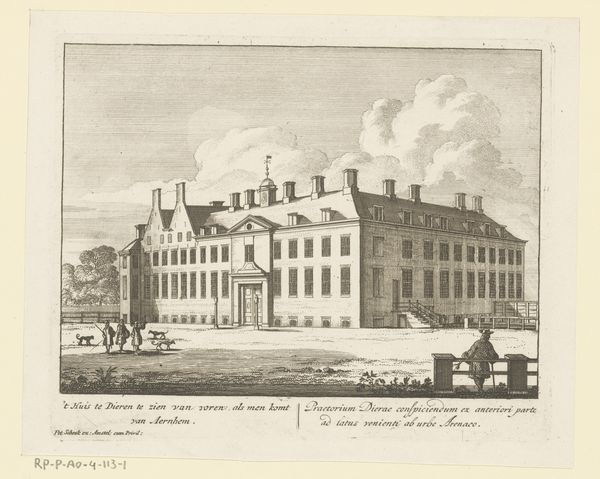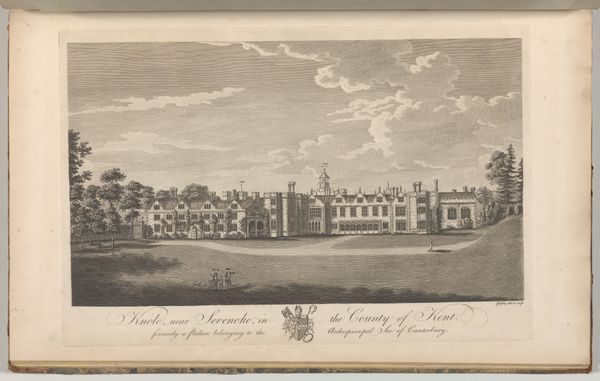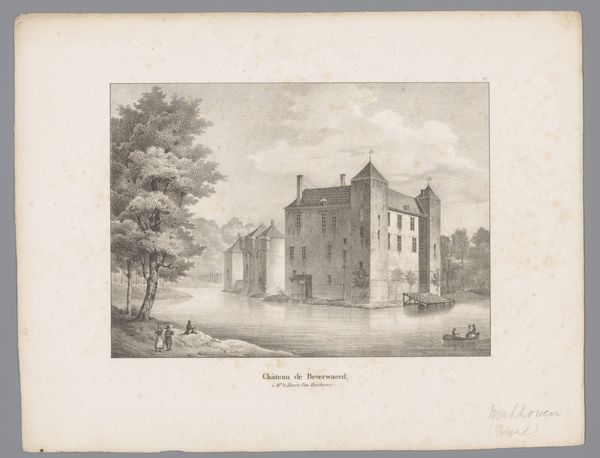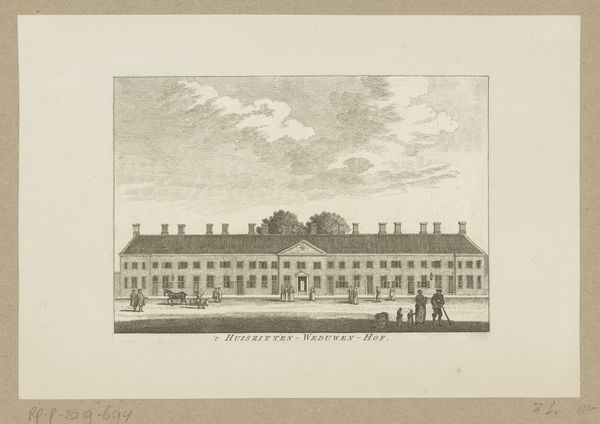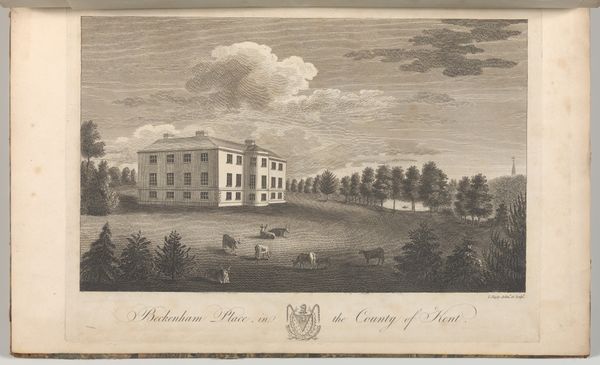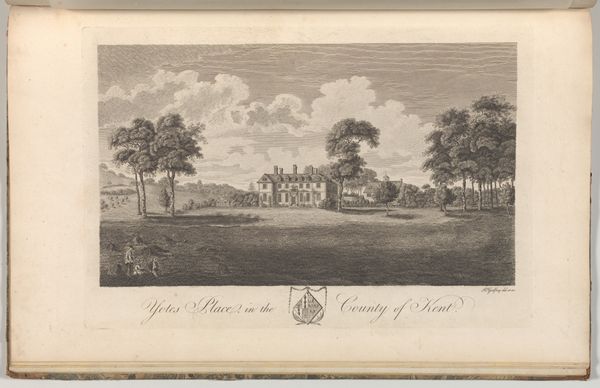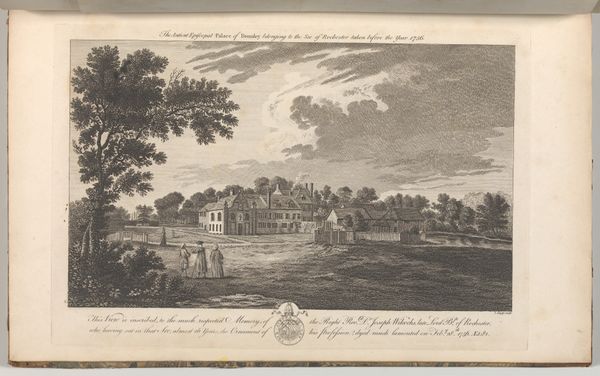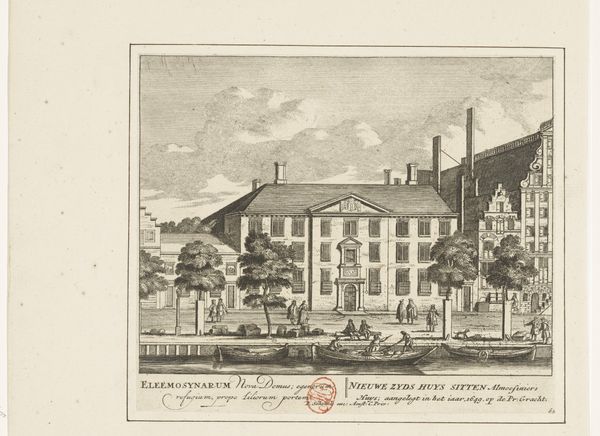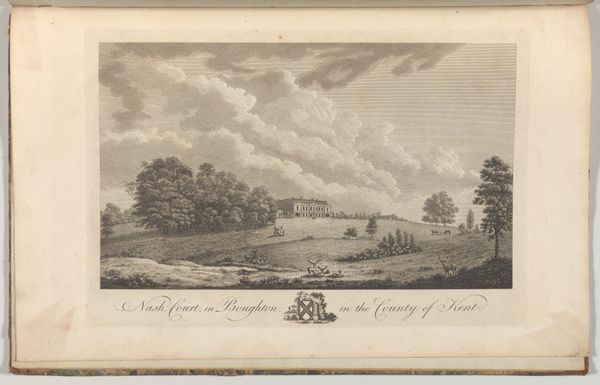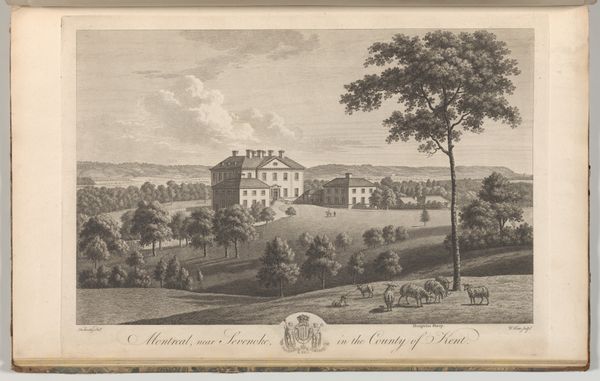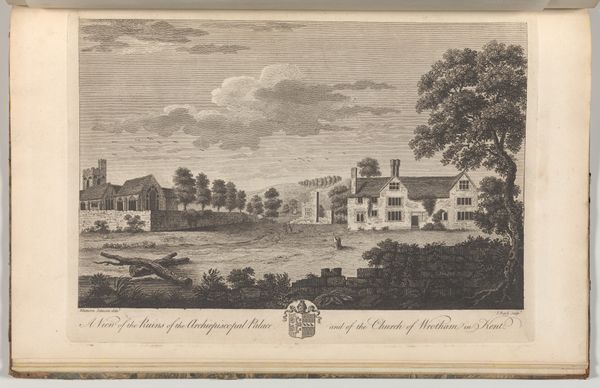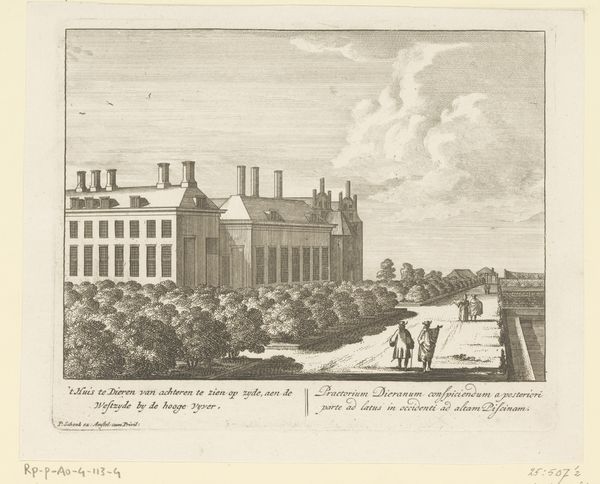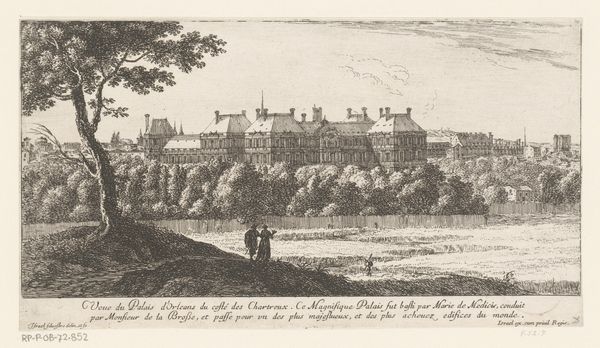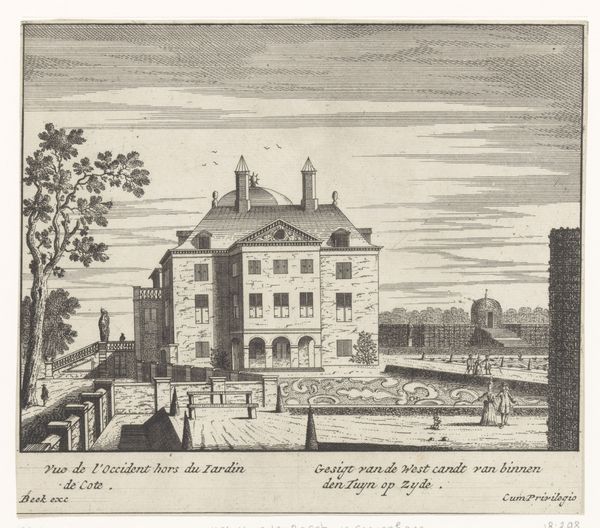
Sutton Place, near Dartford, in the County of Kent, taken in the year 1766, before the alterations, from Edward Hasted's, The History and Topographical Survey of the County of Kent, vols. 1-3 1777 - 1790
0:00
0:00
drawing, print, etching, engraving
#
drawing
#
neoclacissism
# print
#
etching
#
landscape
#
history-painting
#
engraving
Dimensions: Book: 17 5/16 × 11 × 13/16 in. (44 × 28 × 2 cm) Sheet: 16 15/16 × 10 5/8 in. (43 × 27 cm) Plate: 10 1/16 × 14 in. (25.5 × 35.5 cm)
Copyright: Public Domain
This print of Sutton Place, near Dartford, was made in 1766 by an anonymous artist, and appears in Edward Hasted’s “The History and Topographical Survey of the County of Kent.” It is a humble example of intaglio printmaking, likely using etching or engraving. Note the fineness of the lines, which give a great deal of architectural detail, and create atmospheric effects with subtle gradations of light and shadow. These lines were created by physically cutting into a metal plate, with incredible skill. This print comes from a period when these types of images were crucial to disseminating information, especially about fashionable taste, and served to democratize design in a way. It suggests the immense labor involved in the production process, and the way that seemingly straightforward images are actually born of complex social and economic circumstances. Paying attention to materials and making allows us to go beyond the image itself, and consider the world in which it was made, and the hands that made it.
Comments
No comments
Be the first to comment and join the conversation on the ultimate creative platform.
